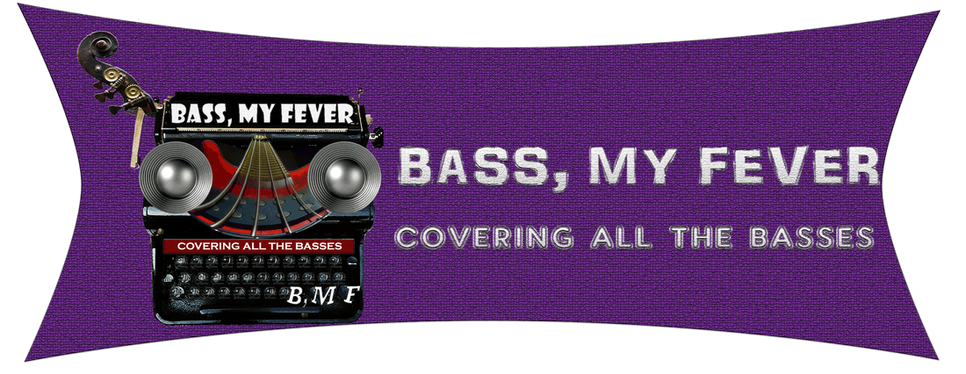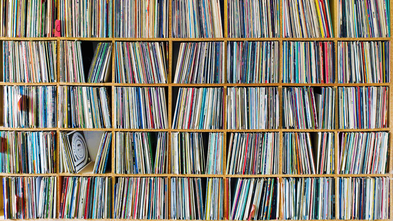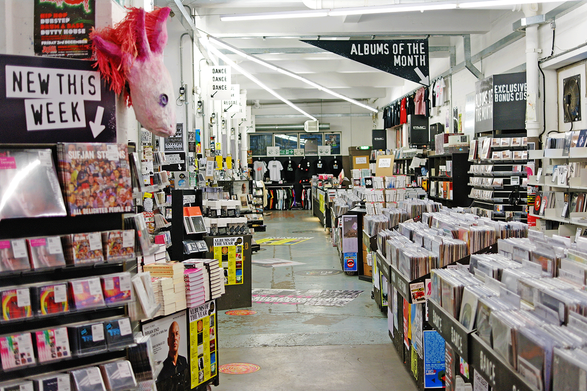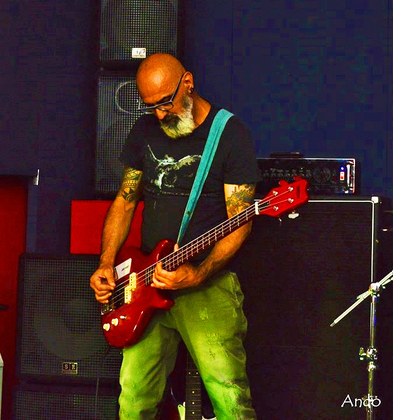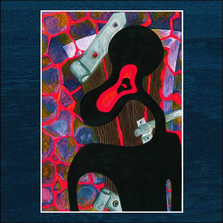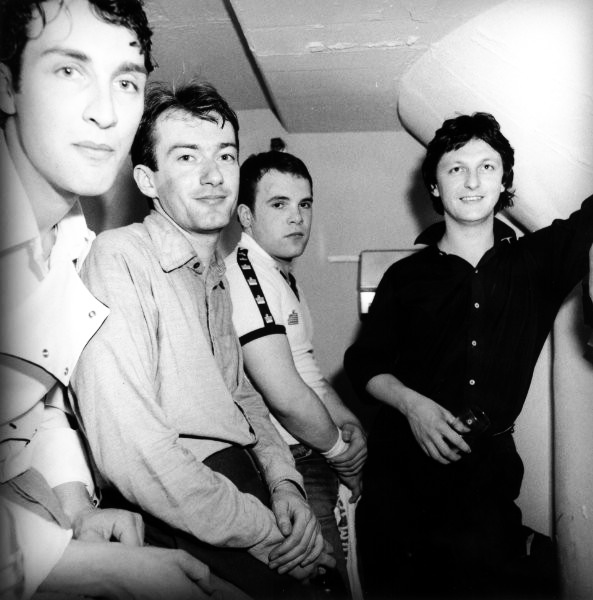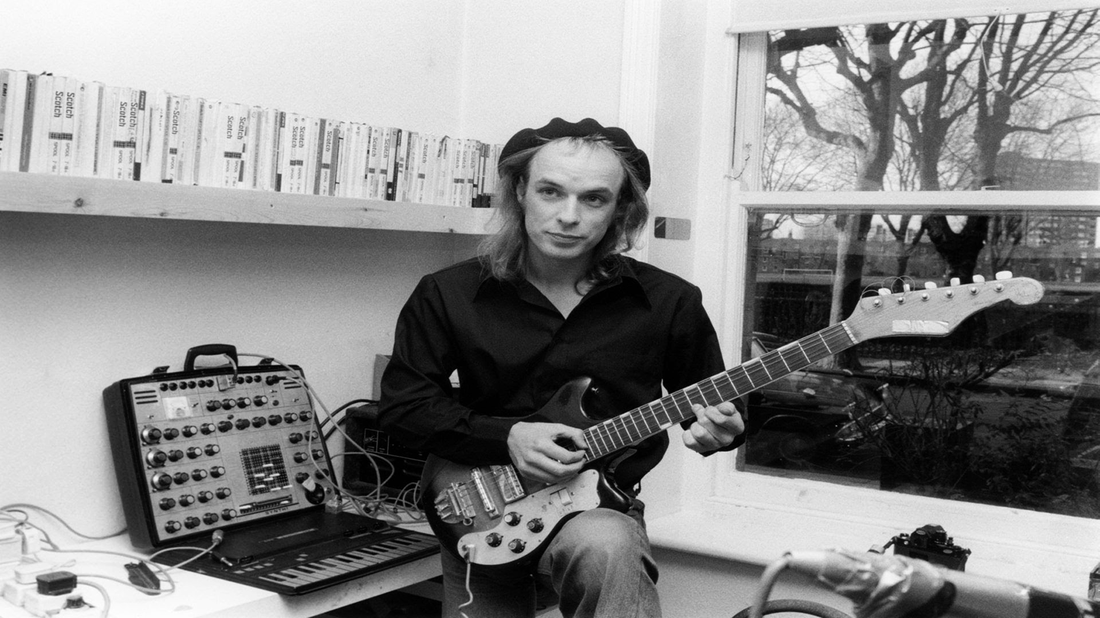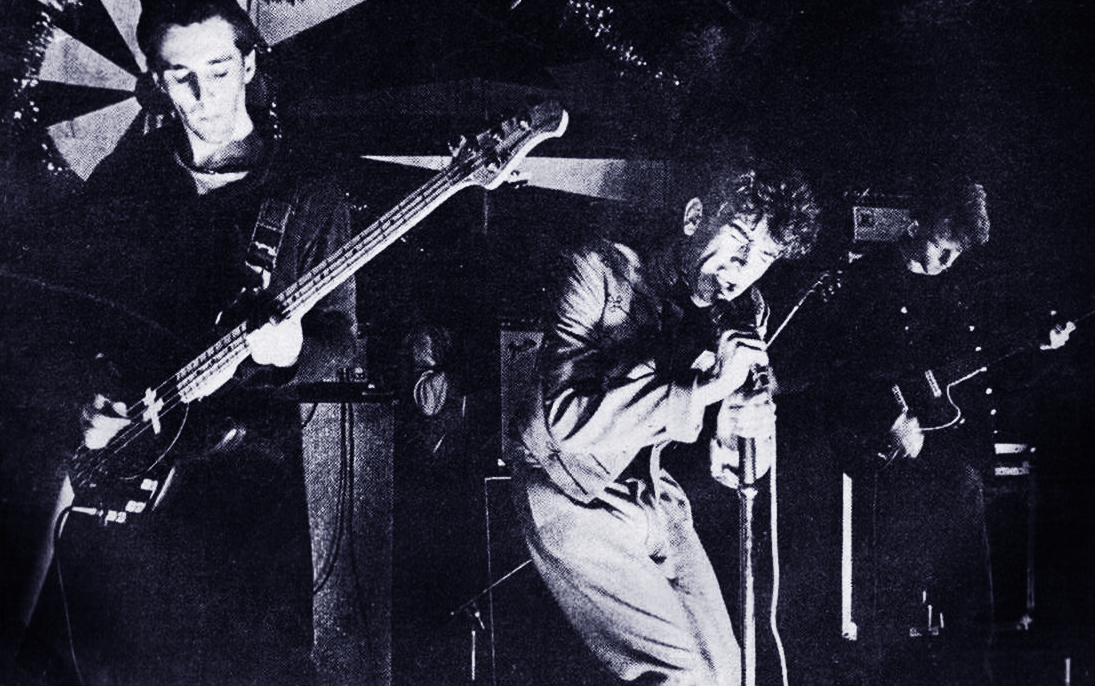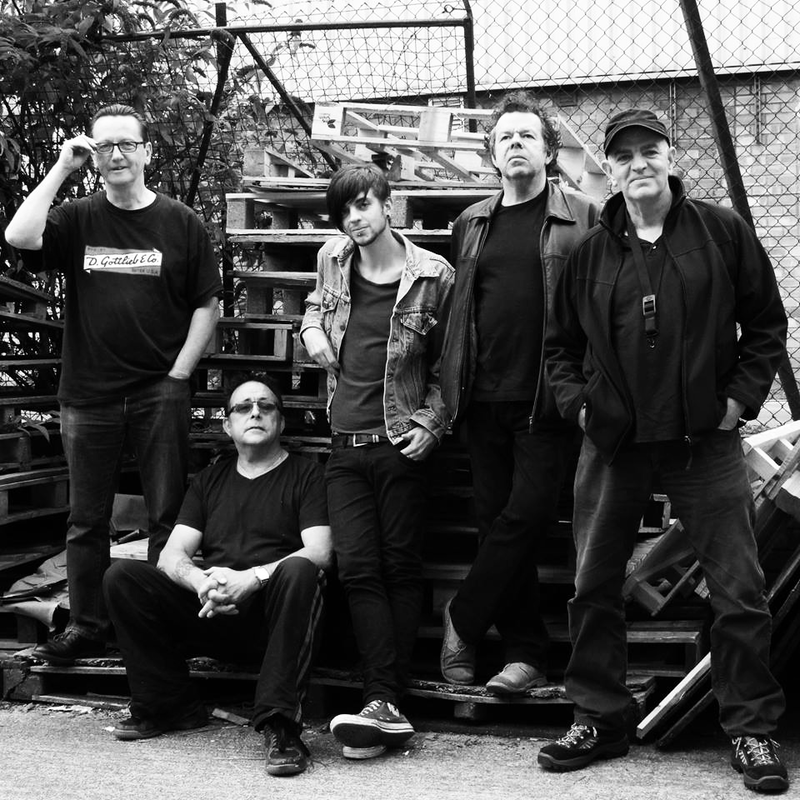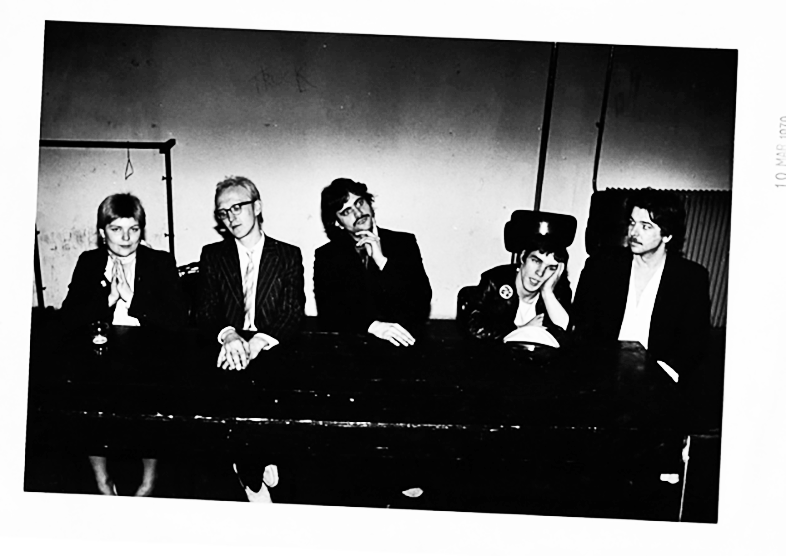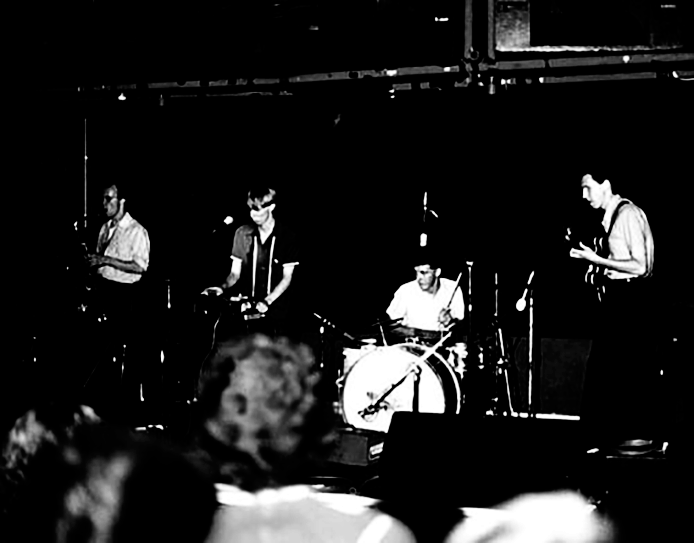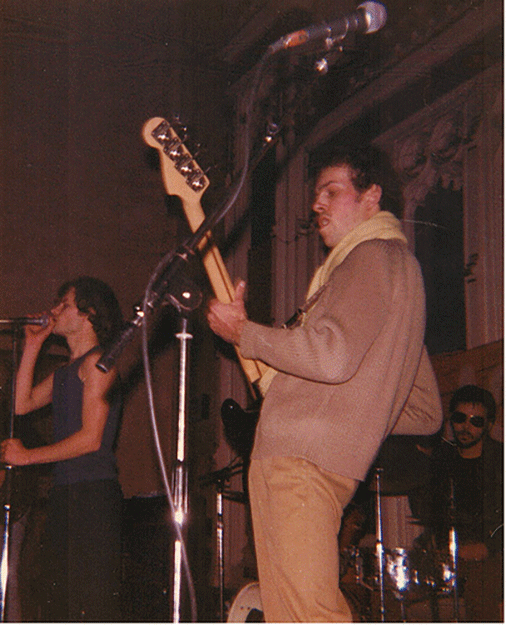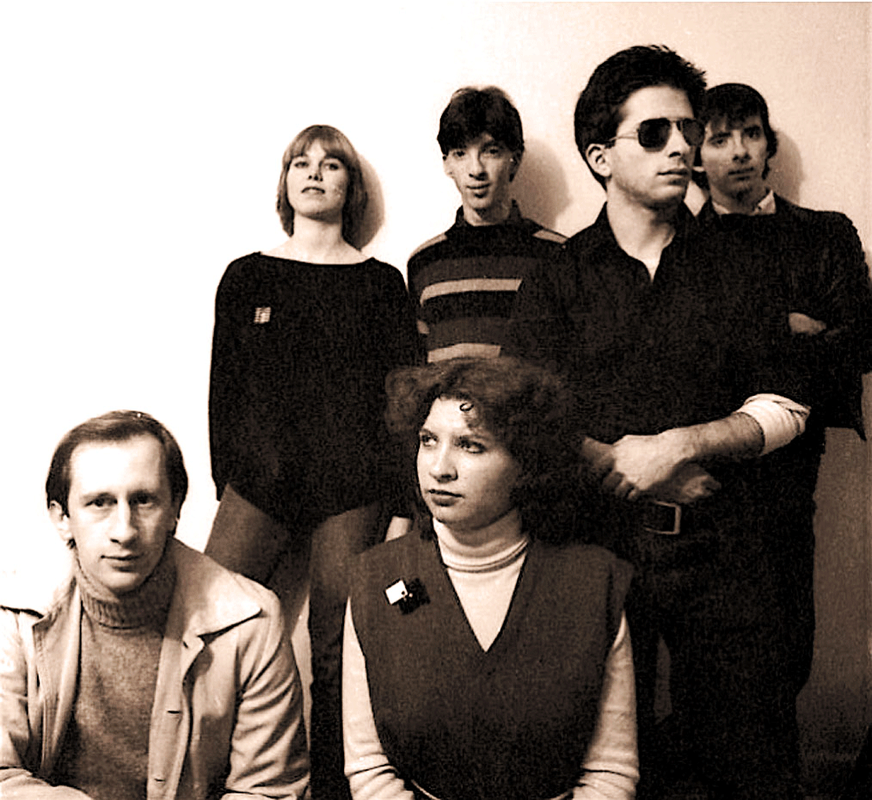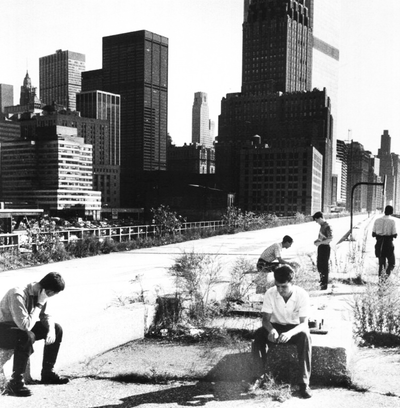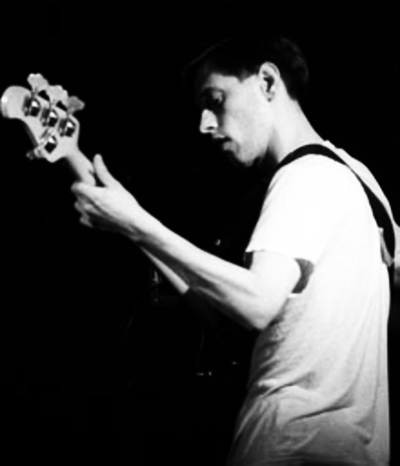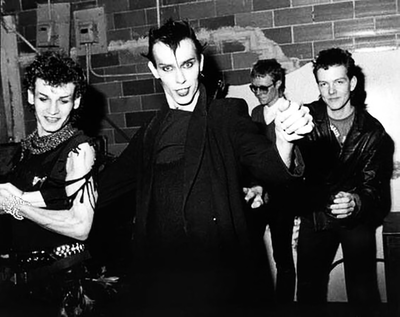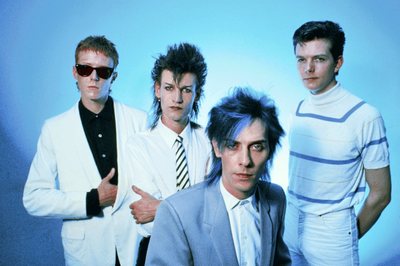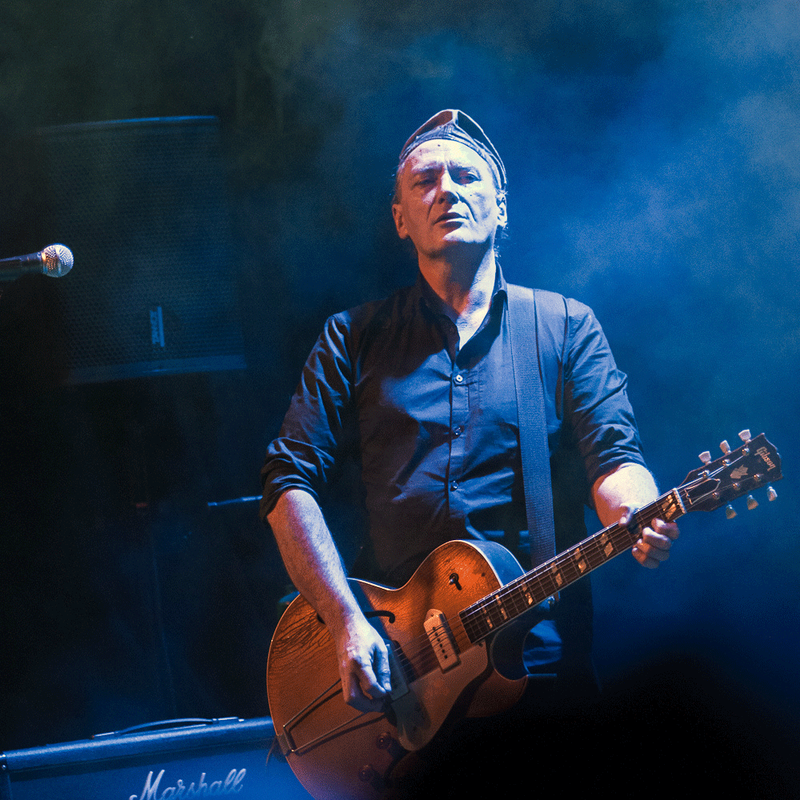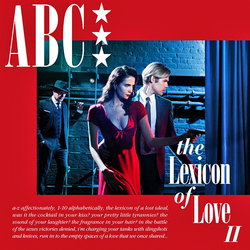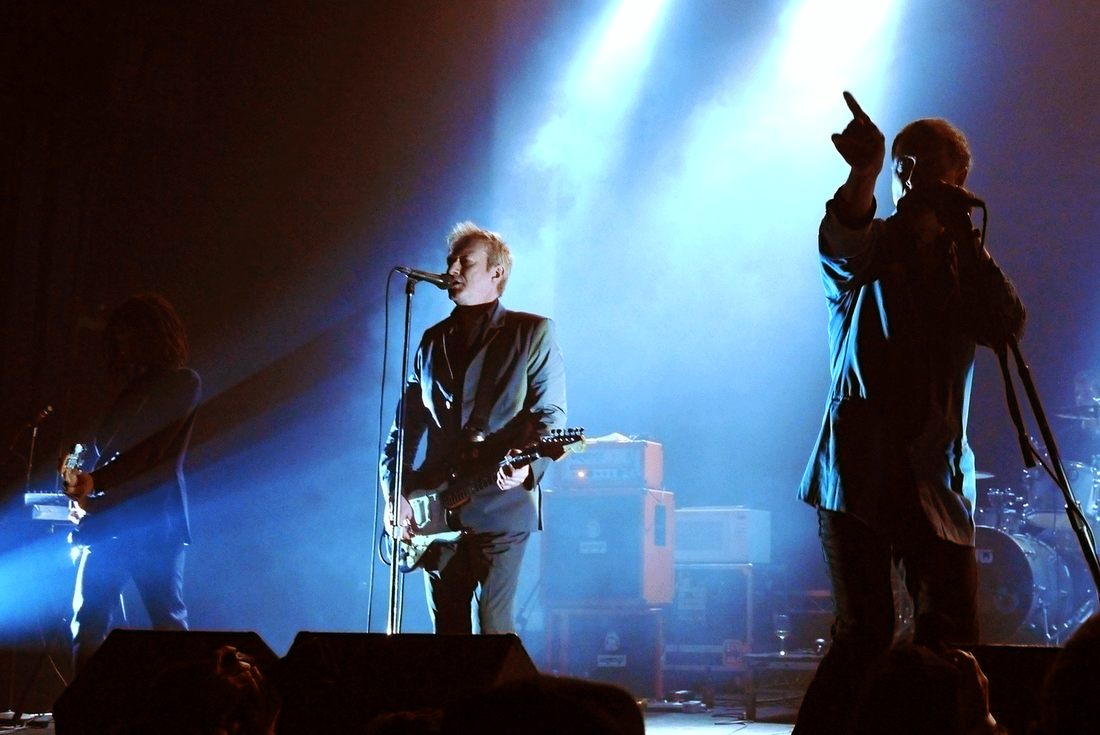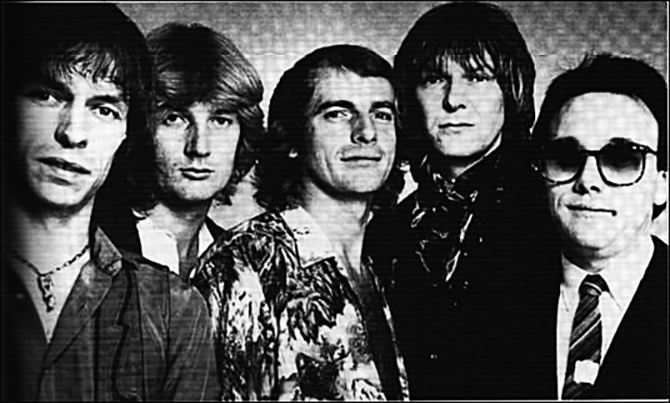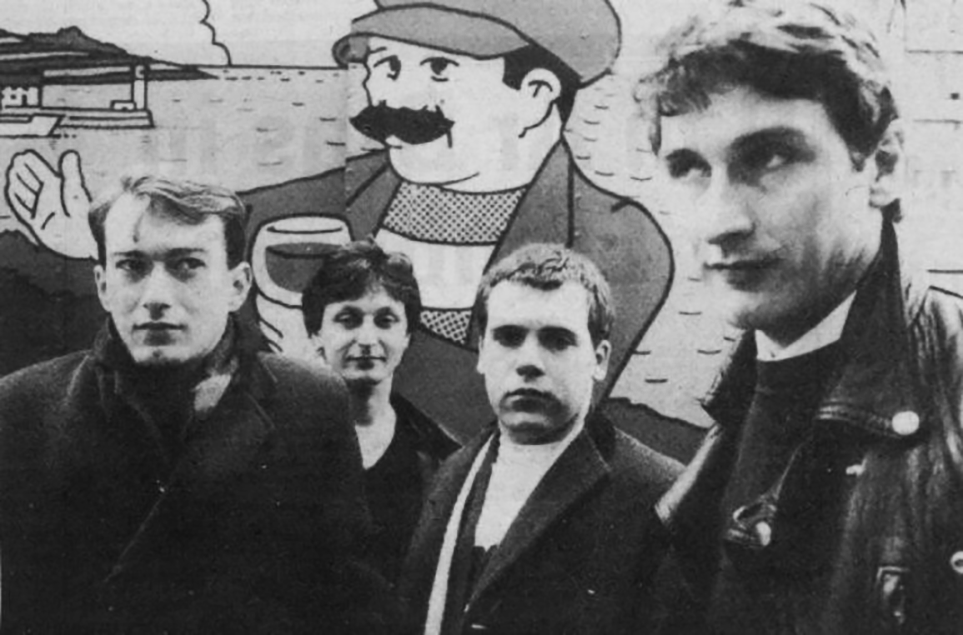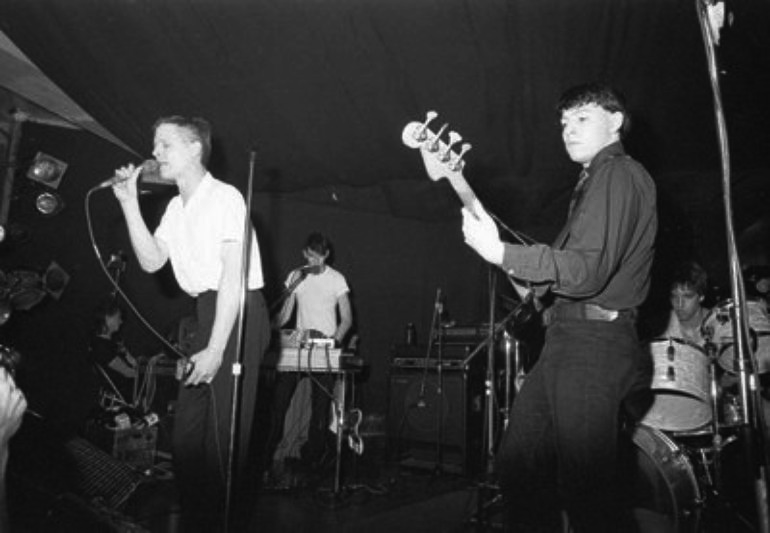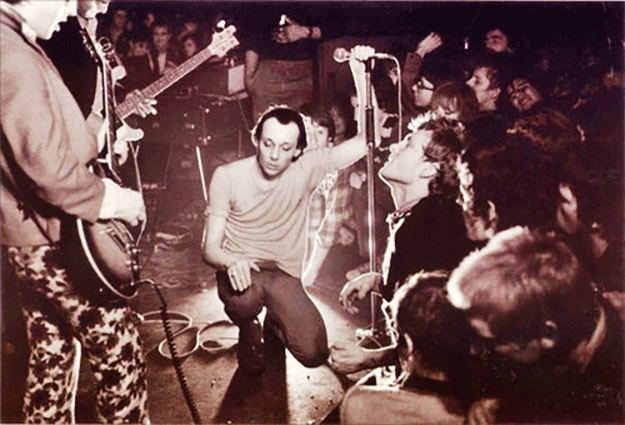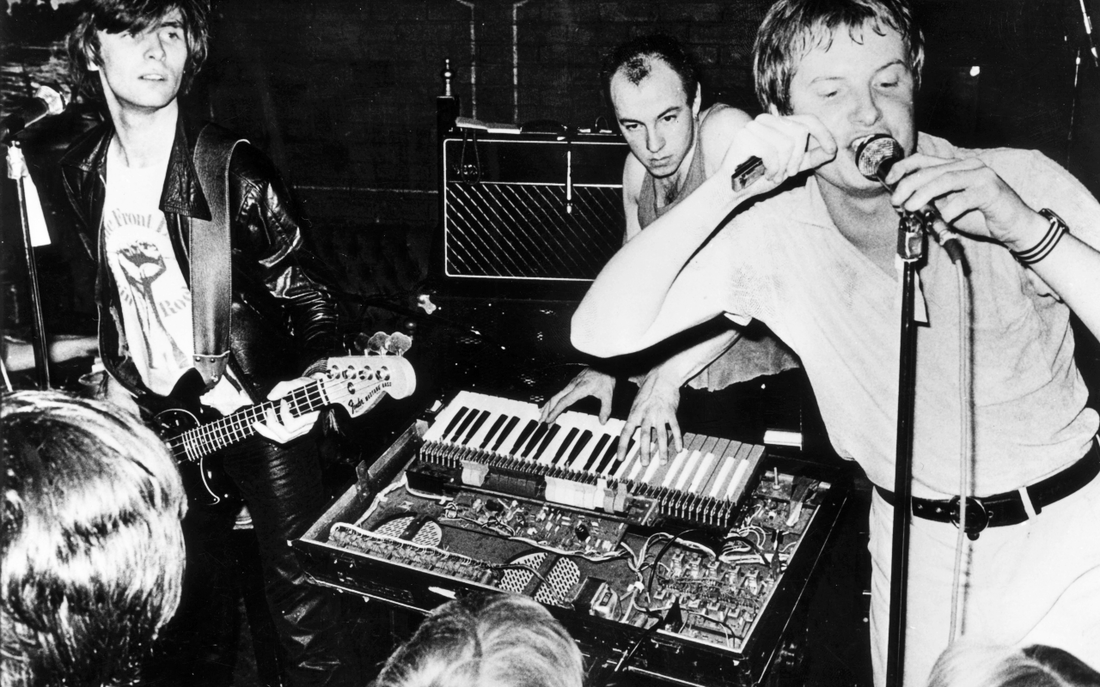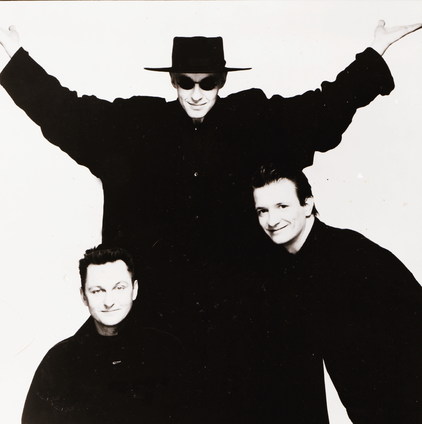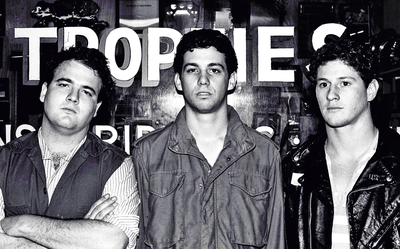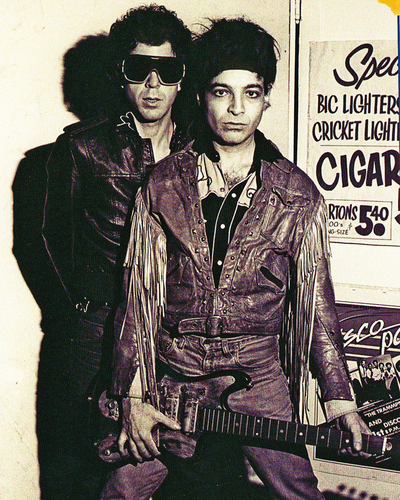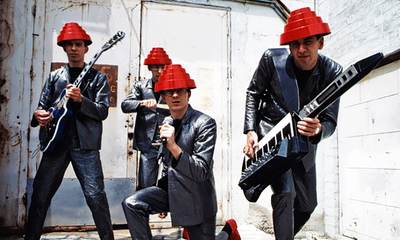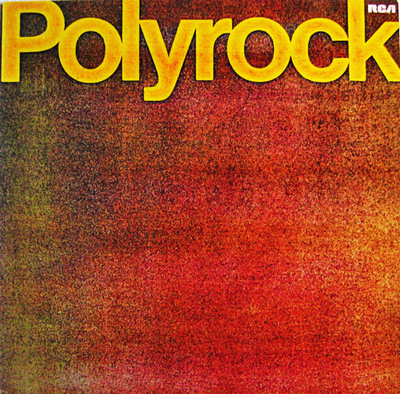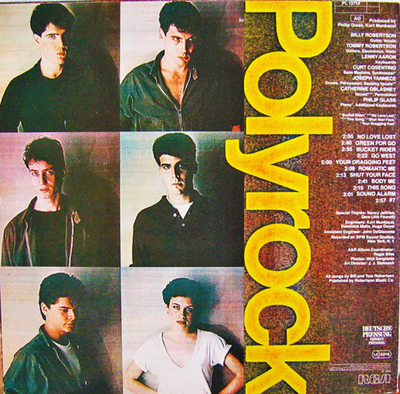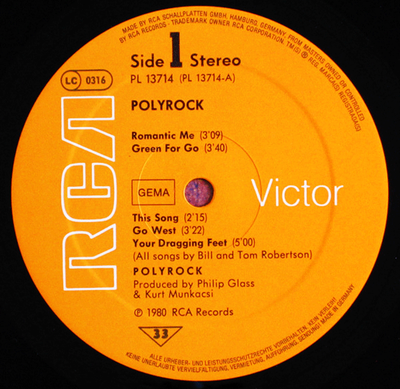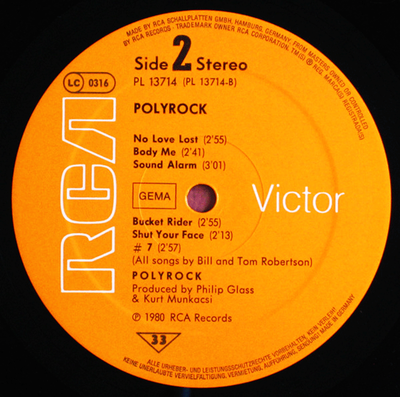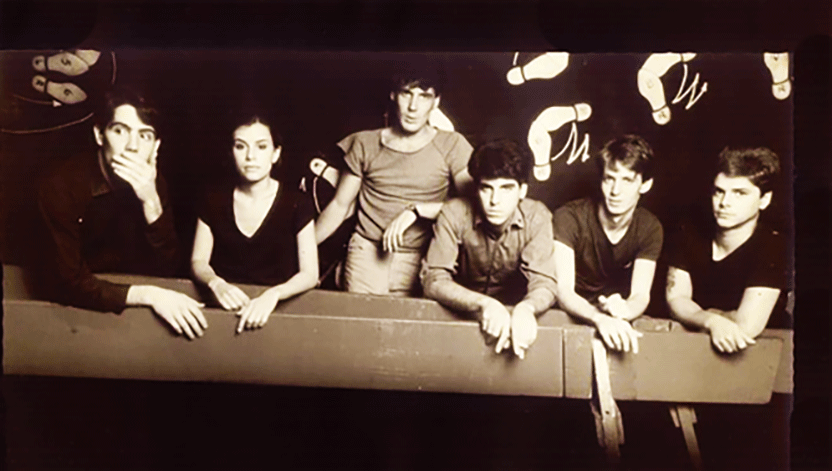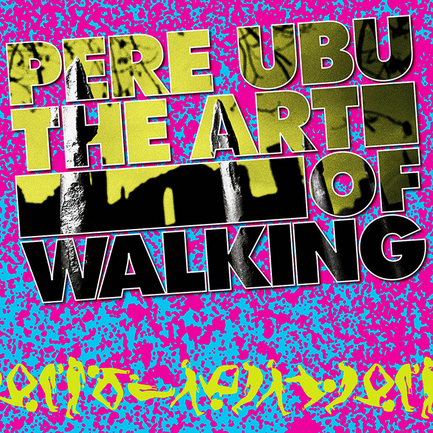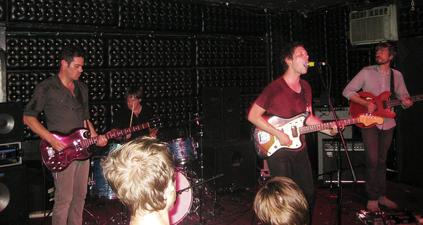COME IN UN NEGOZIO DI DISCHI |
LIKE BEING IN A RECORD
|
|
LDP: Flavio, come mi dicesti nel nostro precedente incontro a proposito dell’uscita del vostro album, le tue radici affondano nel post punk e nella new wave, ma comprendono anche prog rock, jazz e altro. Sei dunque l’interlocutore ideale per questa chiacchierata. Vorrei focalizzarmi, oggi, proprio sul post punk e derivati. Quali sono state le formazioni più influenti a tuo parere? E poi, nel post punk abbiamo avuto un’anima politicizzata e iconoclasta (Gang Of Four, Pop Group…), ma anche incarnazioni industrial, tribalistiche, gotiche… ed anche band più mainstream sono transitate nel grande magma. Non pensi che sia stato un movimento stratificato, eterogeneo e potentissimo e che non è vero che gli ottanta…?
FG: Sì, sono d’accordo con la tua analisi, è stata un'onda gigantesca e per molti versi anomala quella sorta a cavallo della fine anni ‘70 e inizi ‘80.... potentissima, ricchissima di significati e diversificata, molto. Allora la stampa (quella non specializzata) incamerava tante band sotto uno stesso tetto, ma penso....cosa univa gruppi come Pere Ubu e Red Krayola ai Cure? Ho esagerato naturalmente nell'esempio, ma la visione esterna era quella. Era comunque una rivoluzione in corso, ultrastimolante, che secondo me proseguiva, e un certo filo di continuità oggi lo vedo, ciò che era nato qualche anno prima..... Henry Cow e Area, Kraftwerk, Ramones, Stooges, Eno, MC5, per fare qualche nome di "padri"seminali a loro modo punk nell'attitudine del rompere schemi e creare piani innovativi rispetto al sistema cultural/artistico/musicale ricorrente...... Sicuramente tutto ciò che venne fuori dalla wave e dal post-punk cambiava e dava aria nuova a certi stilemi musicali, in certi casi un po’ appassiti. Soprattutto nelle forme compositive e musicali, per esempio, scomparve la suite e le lunghe cavalcate prog, che comunque io ho sempre continuato ad amare e ascoltare.... Mi ricordo che durante un tour con altre band storiche dell'epoca, sul bus ascoltavamo Yes e King Crimson! |
LDP: Flavio, as you’ve already told me in our previous interview about the release of your recent album, your roots go deep into post punk as well as new wave music but they also include prog, jazz and much more. So you’re the ideal interlocutor for this talk. Today I’d just like to focus on post-punk and all of its own derivations.
Which were the most influential bands in your opinion?And then, as regards post-punk we have had a politicised and iconoclastic soul (Gang Of Four, Pop Group…), but even some industrial and gothic incarnations also inspired by tribalism. Moreover different mainstream bands have been through the great magma. Don’t you think that it was a layered, eterogeneous and powerful movement and that it’s not true that…? FG: Yes, I’m agree with your analysis, it was a giant and in many ways such an unusual wave the one that arased between the late 1970s and the early 1980s… It was very strong, meaningful as well as really diversified. At the time, no-specialised press was used to include under the same label so many and different bands… what could associate groups like Pere Ubu and Red Krayola to The Cure? I wanted to exaggerate in this example but the general approach was that. Anyway a revolution was going on, it was provocative and in my view it pursued (today there’s still a connection) all that started a few years before…. Henry Cow and Area, Kraftwerk, Ramones, Stooges, Eno, MC5, to mention some seminal names as regards punk attitude of breaking the pattern so as to draw innovative plans compared to the recurrent state of culture, art and music of the period…. Surely whatever originated from new wave and post-punk changed and renewed that kind of stylised approach to music, which sometimes was going to fade. For instance some compositional forms like the suite and those extended prog rides gradually disappeared even although I never stopped loving and listening to them. I remember that during a tour with other seminal bands of the time, we used to listen Yes and King Crimson on the bus! |
|
LDP: Ho sempre dato grande peso anche alle band minori. Ricordo quanto mi piacevano Glaxo Babies, Nasmak, Martha&The Muffins, Essendon Airport… ci sono delle band che ti hanno segnato e che hai amato non assurte (troppo) all’onore delle cronache?
FG: Sì, tantissime... Gruppi non alla ribalta della cronaca ma dei quali mi innamorai, come Ludus, Pragvec, Circus Mort, Au Pairs, MX80Sound, e altri.... LDP: Il mal di vivere, lo spleen, la desolazione interiore, l’estraneità. Tutte tematiche che entravano di buon diritto nelle caratteristiche più smaccate a livello testuale. Quali sono secondo te gli episodi più efficaci in questo senso? E quanto ci hanno lasciato in eredità quei “profeti difficili”? FG: Beh, sugli scenari di desolazioni possibili, alla Ballard per intenderci.... Joy Division!!! ....unici....irripetibili.... L'eredità? Se sei sensibile e capisci qualcosa di musica, direi tanta, molta. |
LDP: I’ve always attached a great importance to the marginal bands. I really liked Glaxo Babies, Nasmak, Martha&The Muffins, Essendon Airport… Can you mention any influential bands that you loved but which weren’t too much famous?
FG: Yes, there are so many cases.. Groups like Ludus, Pragvec, Circus Mort, Au Pairs, MX80Sound and many others which were not in the spotlight but that I loved a lot… LDP: Pain of living, spleen, inner desolation as well as strangeness were all relevant themes from a lyrical point of view. What are the most effective episodes in this respect? And how much of the heritage left by those “complicated prophets” passed on to us? FG: Well, as regards possible scenarios of desolation, as Ballard did, just to be clear, I can cite the one and only Joy Division!!!... they were unique… The heritage? If you are sensitive and anderstand anything about music I would say a lot of heritage.. |
|
LDP: Parliamo di suoni. Il basso angosciante di Peter Hook, la chitarra gelida di Geordie dei Killing Joke e quella al vetriolo di Andy Gill… quali suoni del periodo ricordi con più nitidezza? Quali non sono mai stati ripetuti?
FG: Geordie mi fulminò nel vederlo dal vivo che iniziava con Requiem, ho ancora i brividi adesso.... Andy Gill caposcuola, Peter Hook… ma anche il mio preferito, Steven Severin, il signore del buio.... ma anche John McGeoch e Barry Adamson.....mitici Magazine....e amavo le trame di tastiere di un certo Richard Barbieri, Japan! Aggiungo personalmente la follia che provavo per i A Certain Ratio e per Jeremy Kerr, il loro bassista. Come puoi vedere, io tendevo molto verso la terra d'Albione..... Bauhaus, Siouxsie, Virgin Prunes, Sex Gang Children, Killing Joke, P.I.L(Metal Box...capolavoro), Pop Group, The Sound.. e i già sopracitati Magazine, Japan,A Certain Ratio, Gang of Four, Joy Division....mi fermo! |
LDP: Let’s talk about sounds. The intense bass of Peter Hook, Geordie’s ice-cold guitar from Killing Joke and the vitriolic one played by Andy Gill… What kind of sonorities do you remember more clearly? Which of them were never be repeated?
FG: Geordie really impressed me when he started to perform Requiem, it still sends shivers down my spine… Andy Gill, he was the founder, Peter Hook… but also my favourite, Steven Severin, the Lord of Darkness… John McGeoch and Barry Adamson…the mighty Magazine… and I loved the patterns drown by a certain Richard Barbieri on keyboards, from Japan! Personally I would stress the craziness that I felt for A Certain Ratio and Jeremy Kerr, their bassist. As you can see I was in favour of the land of Albion…. Bauhaus, Siouxsie, Virgin Prunes, Sex Gang Children, Killing Joke, P.I.L (Metal Box is a work of art), Pop Group, The Sound.. and already mentioned Magazine, Japan, A Certain Ratio, Gang of Four, Joy Division....I should stop! |
|
|
|
LDP: Cosa pensi dei new romantics e di quei gruppi che per comodità giornalistica (e mentale) venivano annessi alla “degenerazione”? Possibile che fosse tutto fasullo e loffio? O lì dentro, in quel calderone indistinto, qualcosa andava salvato e oggi ripescato? Io faccio outing e ti dico che a parte la fissa per i primi Spandau Ballet (non oltre Parade), sto riscoprendo certe cose di ABC e Heaven 17 che avevano un preciso perché…
FG: ABC, "Lexicon of Love"è un disco che non puoi non avere nella discografia personale.... Heaven 17, certo, mille volte, ma questi sono due progetti significativi e importanti che nulla hanno a che vedere con quella tendenza modaiola tanto cara ai...Rettoriani ahahah! LDP: New wave e post punk si sono avventati contro i totem del prog in modo selvaggio e spietato, per esempio demistificando quasi del tutto l’uso delle tastiere e sovvertendone la semantica. Ma non è che distruggendo e dilaniando, qualcosa hanno rubato? FG: Sì, se penso alle tastiere dei Magazine o a dischi come Sister Feeling Call dei Simple Minds, ma penso anche al contrario, come cioè certi suoni abbiano influenzato certi gruppi storici del prog, vedi Yes del periodo Trevor Horn. |
LDP: What do you think about new romatincs groups and all the other ones that the media for reasons of semplification (in addition to a sort of “mental” convenience) were associated to a concept of “degeneration”? Is it possible that anything were a fake or lame? Or rather in that infinite cauldron was there anything to save and to dig up today? I want to come out and I confess I’m rediscovering something of ABC and Heave 17 which made sense, besides my obsession for the first Spandau Ballet (no further than Parade)….
FG: ABC, “Lexicon Of Love” is an essential album for each one’s personal discography… Surely Heven 17 a thousand times, but these are two significant and important project that have nothing to do with that kind of glamour trend which was so dear to the so called “Rettoriani” ahahah! LDP: New wave and post-punk rushed at all of prog totem in such a wild and cruel way, for instance, by overcoming almost completely the use of keyboards so as to pervert their semantic system. But could it be that by destroying and tearing, they stole anything? FG: Yes, if I focus on Magazine’s keyboards or to some albums like Sister Feeling Call of Simple Minds, but I would also think backwards, that is to say by realizing how certain sound influenced some legendary prog bands, like Yes with Trevor Horn. |
|
LDP: Il mercato delle ristampe è attivissimo. Per me fin troppo, anche perché non riesco ad amare particolarmente le edizioni settuple di un solo cd, le vedo (non sempre, ma spesso) come un modo di spillare pecunia al fedelissimo e indurlo alla compulsività. Dell’epoca di cui stiamo parlando, c’è qualcosa che secondo te manca, e manca gravemente? C’è qualche titolo che vorresti tanto fosse ristampato?
FG: Il primo dei Circus Mort... non penso abbia visto ristampa, era un E.P., se l'hanno fatto avvertimi! LDP: Vorrei soffermarmi con te sui Gang Of Four, per me gruppo chiave e insuperato nel suo… due dischi meraviglia e la vena commerciale poi… incoerenza? Incapacità di tensione? O sono belli anche quelli pop, per te? FG: Niente a che vedere con i primi due, io poi ho un debole particolare per Solid Gold..... il periodo post Allen mi deluse ...oggi l'ho rivalutato, e molto. |
LDP: The market for reissues is highly active. In my view it’s far too active also because I can’t particularly love seven editions of the same CD, I see them (not always but often) like a way to take money from loyalists and to lead him to impulse buying. As regards the period we’re talking about , is there anything that fails seriously? Is there any titles that should be reissued?
FG: The album of Circus Mort… I don’t think there’s a reissue, it is an E.P., if you find it around let me know! LDP: I’d like to focus on Gang Of Four with you, in my opinion they’re a cornerstone and a never unsurpassed group in respect to their own genre… two wonderful albums before and after that the commercial trend… Is it incoherence? Or do you like the pop albums, too? FG: They have nothing to do with the first two records, and then I have a particular weakness for Solid Gold, I was disappointed by the post Allen period… but today I’ve reconsidered it. |
|
LDP: Riguardo ai Magazine, che ne pensi di Barry Adamson come bassista?
FG: Devoto l'ho amato dai tempi dei Buzzcocks… "The Correct Use Of Soap" è imperdibile, ma il fascino che mi evoca Play, loro disco dal vivo, è un volo nell'assoluto... noir, poesia, romanticismo deviato. Vere icone, come pure Barry Adamson. LDP: XTC. Io li chiamo “i miei Beatles”. Per te? E Colin Moulding, gli Shriekback? FG: Aspettavo la domanda! XTC! XTC!!!.....sono i nostri Beatles...ho consumato Drums And Wires ,Black Sea, English Settlement letteralmente. Li ho visti dal vivo nella tournée di Black Sea ed English Settlement....ballo ancora adesso!! Colin Moulding è stato un bassista canterburyano post litteram! Affascinante! E qui ti rivolevo. Shriekback..... parlavo prima di Dave Allen, genietto incompreso, creatore di gioielli minimali e di potenze ritmiche differenti come Gang Of Four e Shriekback appunto, ma uguali nell'appassionarmi.....ti ricordi la colonna sonora del primo film dedicato ad Hannibal Lecter? La colonna sonora era loro... |
LDP: With regard to Magazine, what do you think about Barry Adamson, as bass player?
FG: I’ve always loved Devoto since the days of Buzzcocks… “The Correct Use Of Soap” is unloseble but the fascination that “Play” (their live album) reminds me, is a flew towards the infinite… noir, lyricism and strayed romance. They’re an icon like also Barry Adamson. LDP: XTC. I call them “My Beatles”. Who are them for you? And what about Colin Moulding as well as Shriekback? FG: I was waiting for this question! XTC! XTC!!!.....They’re our Beatles… I consumed “Drums And Wires”, “Black Sea”, “English Settlement”, literally. I listened to them during the Black Sea and English Settlement Tour … I’m still dancing!!! Colin Moulding has been a post litteram Canterbury bassist! He’s amazing! That’s just it! Shriekback… I’ve told above about Dave Allen, a misunderstood genius, as well as a creator of minimal gems and different rhythmic forces like Gang Of Four and the same Shriekback, even though they were identical in making me addicted… do you remember the soundtrack of the first movie dadicated to Hannibal Lecter? They made it… |
|
LDP: Nella mia crescita musicale sono stati fondamentali i Minutemen di Mike Watt, i Pere Ubu, i Suicide e i Devo… Oltreoceano il fenomeno post punk e wave sembra aver esaltato più il lato grottesco e cinico che enfatizzare disperazioni e tormenti europei… E la No Wave è stata breve, controversa e deflagrante. La parte americana del malessere ti ha coinvolto?
FG: La scena americana è stata una cosa a parte, più intellettuale per certi versi, sperimentale, avanguardia e poesia beatnik fuse con lisergie varie. Io ho amato molto la scena della Chrome Records, Residents, Tuxedomoon, MX-80Sounds, ma anche la scena NoWave, e in particolare Lydia Lunch. Vorrei citare i preziosissimi Polyrock, per quanto riguarda la scena americana,il loro primo disco prodotto da Philip Glass è un diamante di minimalismo elettrico. Pere Ubu....fondamentali, si, da collocare...oltre...David Thomas, con quella voce tra isteria e presa per i fondelli, mi ha cambiato la percezione del mondo musicale… ascoltando Dub Housing e The Art Of Walking pensavo di non aver compreso dove io fossi collocato! Spiazzanti, urticanti, geniali. Questo è il vero potere della musica.... accompagnarti e spiazzarti, e loro sono geniali. Di loro amo le trame delle tastiere di Allen Ravenstine, da incubo metropolitano. LDP: Una delle tue principali influenze bassistiche è stata Steven Severin, pilastro di Siouxsie And The Banshees, fosco demiurgo dei The Glove, bassista micidiale ed implacabile. Quali altri bassisti del movimento ti sono piaciuti di più? FG: Steven Severin sicuramente, per l'approccio teso, tagliente e al tempo stesso melodico e ammaliante nelle note,un punk alla corte del fascino gotico ed esotico. Ma anche Dave Allen, Jeremy Kerr e Peter Hook.....non è stato un periodo di tecnicismo, ma di grande interpretazione dei propri mezzi comunicativi ed ispirativi. |
LDP: For my own musical training bands like Minutemen of Mike Watt, Pere Ubu, Suicide and Devo were very important… Overseas the post-punk as well as wave phenomenon seemed to emphasize more their grotesque and cinic aspect rather than european dispairs and torments… Moreover No Wave was brief, disputed and explosive… Did you get involved by the american side of that “discomfort”?
FG: The american scene has been a thing apart. It was more intellectual in some respects and experimental, apart from being vanguard and beatnik poetry merged with other lysergic stuff. I loved so much Chrome Records, Residents, Tuxedomoon, MX-80Sounds scene but I also adored NoWave landscape and particularly Lydia Lunch. I’d like to mention the very valuable Polyrock, as regards the american background, their first records produced by Philip Glass is a diamond of electric minimalism. Pere Ubu are fundamental and they should be placed beyond… David Thomas with his voice somewhere between hysteria and joke, he changed my vision of music… By listening to Dub Housing and The Art Of Walking I thought I understood where I was oriented! They were unsettling, urticant and genius. This is the real power of music… It drives you and at the same time it can be over-whelming, in fact, they are brilliant. I love Allen Ravenstine’s patterns on keyboards, an urban nightmare. LDP: One of your inspirations on bass was Steven Severin, the cornerstone of Siouxsie And The Banshees, apart being the dark demiurge of The Glove, a fatal and implacable bassist. Who are the bassists you liked the most? FG: Surely, I liked Steven Severin, for his tense and cutting approach but that was at the same time melodic as well as charming in the notes. That is to say a punk placed in the court of a gothic and esotic fascination. I do not forget Dave Allen, Jeremy Kerr and Peter Hook… It wasn’t a skills-oriented period but a moment of great performances in terms of communication and ispirations. |
|
LDP: Penultima domanda. Parlando di Gang Of Four, ma anche di A Certain Ratio, 23 Skidoo, i James Chance and the Contortions e molti altri: il funk bianco ti ha sedotto all’epoca? E quanto c’è di quel funk non ortodosso nel punk funk del 2000 ed in gruppi di oggi come i Disappears, per esempio?
FG: James White e i suoi Contortions, il funk bianco è lì , ma certo per i gruppi che citi, la mia passione per i A Certain Ratio, quella tromba su tappeti funk e trame oscure, che miraggio, li ho visti dal vivo e apprezzai la loro ottima capacità esecutiva,veramente coinvolgenti e trascinanti! E poi si, la trance dei 23 Skidoo, i Pop Group e le loro diramazioni, come Rip Rig And Panic, PigBag (ascoltateli e ballateli) Maximum Joy.... grande nutrimento, pure quello mi ha sedotto. |
LDP: This is the second to last question. Talking about Gang Of Four, without forgetting A Certain Ratio, 23 Skidoo, James Chance and the Contortions and many more: did the white funk seduce you at the time? How much orthodox funk is there inside the punk-funk of 2000 and in nowadays bands like Disappears, for instance?
FG: James White and his Contortions, white funk is there, but it’s clear that in respect of the mentioned groups, my preference goes to A Certain Ratio and their trumpet on a funk line and dark shadows. They were a mirage, I saw them play live and I appreciated their excellent perform, they were really amazing and captivating. Then trance music of 23 Skidoo, Pop Group and their ramifications like Rip Rig And Panic, PigBag (listen to them and dance!) Maximum Joy… they were my food, I was seduced by them, too. |
|
LDP: Un consiglio per i nostri lettori, a parte le ristampe. Facci una mappa di quello che secondo te, in quel periodo decisivo che Reynolds ha identificato nei sei anni 1978-84 ma anche andando un po’ oltre, sono i titoli necessari per capire, per incuriosirsi ulteriormente…
FG: Kaleidoscope di Siouxsie, My life in the bush of ghosts di Eno&Byrne, In the flat field dei Bauhaus, Killing Joke omonimo, Metal Box dei P.I.L, Closer dei Joy Division, Dub Housing dei Pere Ubu,la raccolta NO Wave, Real Life dei Magazine, Entertainment dei Gang Of Four, For how much longer...del Pop Group, Faith e Pornography dei Cure......e.....Pordenone Great Complotto!! |
LDP: I ask you a suggestion for our readers, other than the reissues. Draw a map of what in your opinion were some essential titles, so as to understand (and to get curious further) that decisive period framed by Simon Reynolds in his fundamental book called Post- Punk 1978-1984 and going beyond…
FG: Kaleidoscope by Siouxsie, My life in the bush of ghosts by Eno&Byrne, In the flat field by Bauhaus, Killing Joke’s album of the same name, Metal Box by P.I.L, Closer by Joy Division, Dub Housing by Pere Ubu, the collection NO Wave, Real Life by Magazine, Entertainment by Gang Of Four, For how much longer...by Pop Group, Faith and Pornography by The Cure......and.....Pordenone Great Complotto!! |
